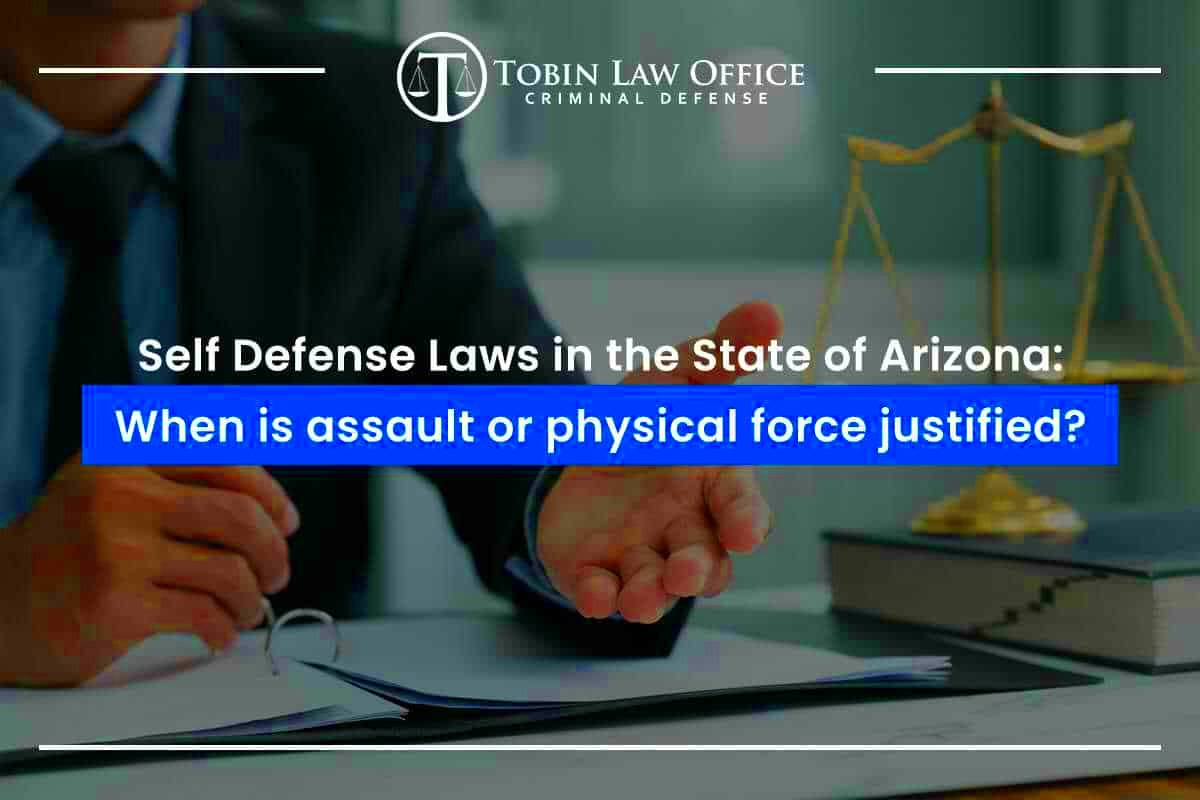Arizona Home Defense Laws and Your Rights as a Homeowner
Arizona has unique laws when it comes to home defense. These laws are designed to protect homeowners and ensure their right to defend themselves and their property. Understanding these laws is crucial for anyone living in Arizona, as they clarify what is permissible in threatening situations.
One key aspect is that Arizona operates under a “Castle Doctrine.” This means that a person has the right to use reasonable force to protect their home from intruders. If someone unlawfully enters your home, you can defend yourself without a duty to retreat. However, it’s essential to understand what constitutes reasonable force. Deadly force is only justified in situations where a person genuinely fears for their life or serious injury.
Rights of Homeowners in Arizona

As a homeowner in Arizona, you have several rights that protect you and your property. Here are some essential rights to consider:
- Right to Self-Defense: You can defend yourself and your property against threats.
- Right to Protection from Unlawful Entry: You can refuse entry to anyone who does not have your permission.
- Right to Call Law Enforcement: You have the right to contact the police if you feel threatened.
- Right to Privacy: Your home is your sanctuary, and you have a right to privacy within it.
These rights empower homeowners to take action when faced with danger, ensuring a sense of security in their own homes.
Use of Force in Home Defense Situations
The use of force in home defense situations can be a complex topic. Arizona law allows for the use of reasonable force when protecting yourself or others. Here’s what you should know:
- Reasonable Force: This is force that a reasonable person would consider necessary in the same situation. It can include physical restraint or the use of a weapon.
- Deadly Force: This can only be used if you believe you are facing an imminent threat of death or serious bodily harm. Always assess the situation carefully.
- Duty to Retreat: Arizona does not require you to retreat before using force, but it is often encouraged if safe to do so.
Keep in mind that how the situation unfolds can affect the legal perspective on the use of force. Always prioritize de-escalation and seek non-violent solutions if possible.
Legal Protections for Homeowners
Homeowners in Arizona enjoy several legal protections that safeguard their rights, especially when it comes to defending their property. Knowing these protections can provide peace of mind and confidence in your rights as a homeowner. In essence, Arizona law supports you in taking action to protect yourself and your family.
One of the primary legal protections is the “Castle Doctrine,” which allows homeowners to use reasonable force, including deadly force, against intruders in their home. This doctrine reinforces your right to defend your living space without the obligation to retreat. Here are some key legal protections for homeowners:
- Protection Against Unlawful Entry: You can legally remove someone from your property if they refuse to leave.
- Immunity from Civil Liability: In some cases, if you use force in self-defense, you may not face civil lawsuits from the intruder.
- Defense Against Criminal Charges: If you are charged after defending yourself, you can argue that your actions were justified under the law.
These protections are designed to empower homeowners and help ensure their safety in their own homes. However, it’s important to understand the specific circumstances that apply to these protections.
Stand Your Ground Laws in Arizona
Arizona’s “Stand Your Ground” laws are essential for understanding how the state approaches self-defense situations. These laws give individuals the right to defend themselves without the obligation to retreat. This means if you are in a place where you have a legal right to be, you can use force to protect yourself from harm.
Here’s what you need to know about these laws:
- No Duty to Retreat: Unlike some states, Arizona does not require individuals to retreat before using force in self-defense.
- Legal Protection in Public Spaces: This right applies not only in your home but also in other public spaces where you have a right to be.
- Assessment of Threat: To use force legally, you must believe that you are facing an imminent threat of death or serious injury.
While these laws provide significant protections, it’s important to remember that the situation’s specifics can greatly affect how the law is applied. Always prioritize safety and non-violent conflict resolution whenever possible.
What to Do After a Home Defense Incident
Experiencing a home defense incident can be traumatic and confusing. Knowing what to do afterward is crucial for protecting your legal rights and ensuring your safety. Here’s a step-by-step guide on what to do if you find yourself in such a situation:
- Ensure Safety: First and foremost, make sure that you and any other occupants are safe. If the threat is still present, find a secure location.
- Call Law Enforcement: Contact the police immediately to report the incident. Provide them with accurate information about what happened.
- Do Not Discuss Details: When speaking to law enforcement, stick to the facts. Avoid sharing your opinions or justifications until you have legal representation.
- Seek Medical Attention: If anyone is injured, ensure they receive medical care. This includes you, even if injuries seem minor.
- Document Everything: Take notes on the incident while it is fresh in your mind. Document any injuries, damage, and the sequence of events.
- Consult a Lawyer: Engage a lawyer experienced in home defense laws as soon as possible to discuss your rights and any potential legal issues.
Following these steps can help protect your rights and provide clarity in the aftermath of a stressful situation. It’s essential to stay calm and act wisely.
Common Legal Myths About Home Defense
When it comes to home defense, many misconceptions can lead homeowners to make uninformed decisions. Understanding these common legal myths is essential for protecting yourself and your property effectively. Let’s debunk some of the most widespread myths surrounding home defense laws.
- Myth 1: You must always retreat before using force.
In Arizona, there is no duty to retreat in your home. You can defend yourself without leaving the situation if you are in a place where you have the right to be. - Myth 2: You can use deadly force for any threat.
Deadly force is only justified if you genuinely believe you are facing imminent danger of death or serious injury. - Myth 3: If the intruder is injured, you will face criminal charges.
If you acted within the law, you may not face criminal charges. Arizona laws are designed to protect reasonable self-defense actions. - Myth 4: All homeowners have the same rights.
While many rights are consistent, specific circumstances and individual actions can affect legal standing.
It’s important to educate yourself on these myths to make informed decisions in high-pressure situations. Knowledge is power when it comes to protecting your rights and home.
Consulting a Lawyer for Home Defense Issues
Consulting a lawyer after a home defense incident is a wise step that can make a significant difference in the outcome of your situation. A legal expert can provide clarity, guidance, and support as you navigate the complexities of home defense laws.
Here’s why consulting a lawyer is crucial:
- Legal Expertise: A lawyer who specializes in home defense can explain your rights and obligations under Arizona law.
- Case Evaluation: They can evaluate the specifics of your case to determine the best course of action.
- Representation: If charges are filed against you or if there are civil suits, a lawyer will represent your interests and defend your rights in court.
- Prevent Missteps: An attorney can help you avoid common legal pitfalls that could jeopardize your defense.
- Peace of Mind: Having a legal expert on your side can provide reassurance and reduce stress during a challenging time.
Whether you’ve been involved in a home defense incident or are seeking to understand your rights better, a lawyer can be an invaluable resource.
FAQ
Here are some frequently asked questions about home defense laws in Arizona:
- What should I do if someone breaks into my home?
Ensure your safety first, call the police, and avoid engaging with the intruder if possible. - Can I use a weapon for self-defense?
Yes, but ensure that the use of a weapon is justified based on the threat level. - Will I face charges if I defend myself?
Not necessarily. If your actions were reasonable and justified, you may not face charges. - Do I need to notify the police immediately?
Yes, it’s essential to report the incident to law enforcement as soon as it’s safe to do so. - Can I sue an intruder if I’m injured?
In some cases, you may have grounds for a civil lawsuit, but consult a lawyer for specific advice.
These questions highlight the importance of understanding your rights and responsibilities as a homeowner in Arizona. Always consult legal counsel for personalized advice.
Conclusion
Understanding Arizona home defense laws is crucial for every homeowner. By familiarizing yourself with your rights, the legal protections available, and the appropriate actions to take in a defensive situation, you can better prepare yourself to handle potential threats. Remember that while the law empowers you to defend your home, it also comes with responsibilities. Always prioritize de-escalation and safety first. If you ever find yourself in a home defense incident, consulting a lawyer is vital to ensure your rights are protected. Knowledge and preparation can make a significant difference in navigating the complexities of home defense laws.


